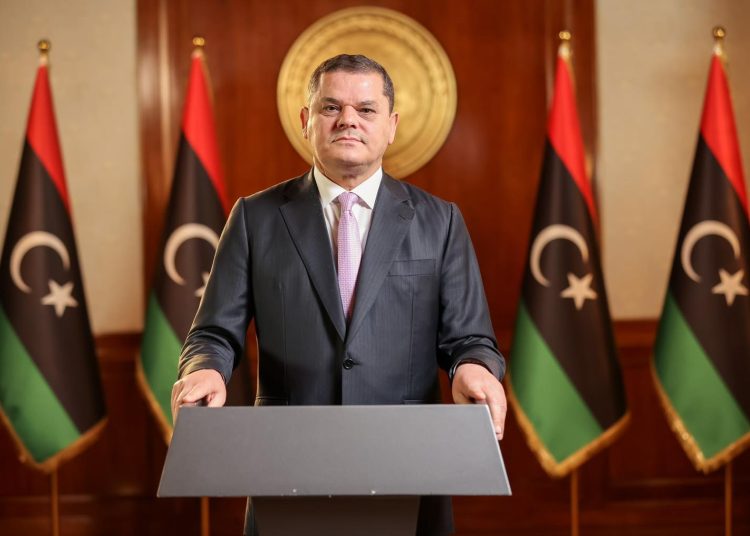In an interview with the Asharq Al-Awsat (the Middle East) newspaper yesterday, Tripoli based Libyan Prime Minister, Abd Alhamid Aldabaiba, said he completely rejects normalisation with Israel. He added that the Palestinian cause is an integral part of the Libyan conscience, and that the rumours about Libya accepting forcibly displaced Palestinians are merely unreliable leaks.
Regarding breaking Libya’s political impasse, Aldabaiba said he held multiple discussions with the UN envoy regarding a roadmap leading to elections that would renew the legitimacy of institutions, such as Parliament (the House of Representatives – HoR), which must be the foundation of the next political phase.
He said the current institutional confusion is the result of the HoR’s performance and unilateral decisions, and that the solution lies in an elected legislative body, a position understood by Libya’s partners and the international community.
Aldabaiba said he had discussed with the United States support for the electoral process and strengthening the economic partnership, with Donald Trump’s Advisor Boulos expressing his full support. Mechanisms for facilitating the electoral process were also discussed, as were the US$ 60 billion in investments offered to stimulate the economy and diversify sources of income. This is a strategic project far removed from political manipulation.
The Tripoli based Libyan PM said he believes that unifying the army is possible after comprehensive national elections, which will contribute to ending the military division. Dismantling militias is a national priority for rebuilding the state. Three paths have been proposed for armed groups, including integrating those who wish to join the Ministries of Defence and Interior.
He stressed that the relationship with Turkey is strategic and based on respect and common interests and is witnessing continuous development. Likewise, there is a gradual improvement in the relationship with Russia.
Finally, he emphasised that electoral laws must be fair and enforceable, not tailored to individuals. He called on the obstructing parties to implement them immediately to enable the people to choose their leaders.








